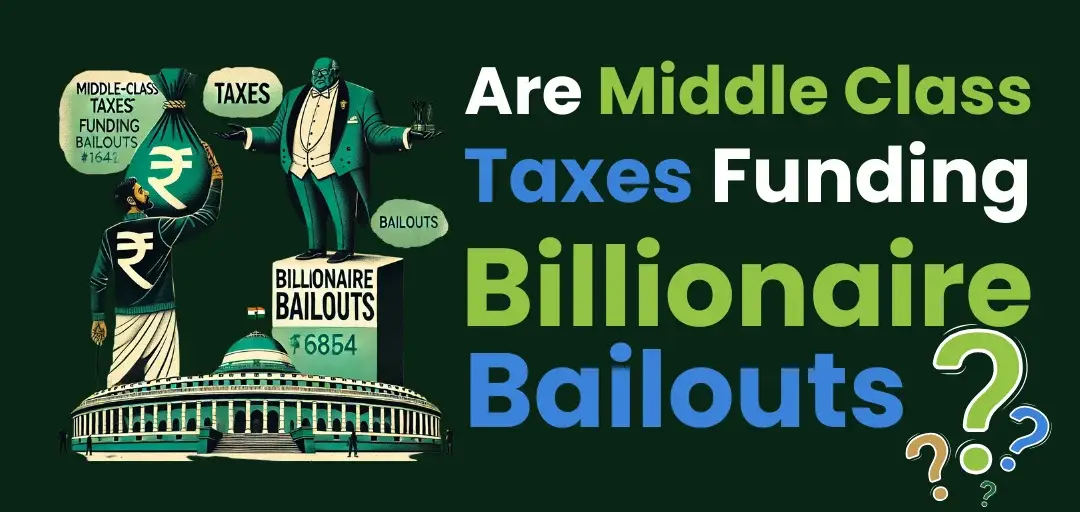Are Middle-Class Taxes Funding Billionaire Bailouts?
The middle class is often referred to as the backbone of any economy. Yet, when financial crises strike, the burden of recovery disproportionately seems to fall on them. A critical question emerges: Are middle-class taxes funding billionaire bailouts? This controversial issue has sparked debates globally, with implications for economic fairness and social justice.
The Cycle of Economic Crises and Bailouts
Economic crises, whether triggered by housing market collapses, banking scandals, or global pandemics, often result in governments stepping in with massive bailout packages. These bailouts are intended to stabilize the economy, save jobs, and prevent widespread financial chaos. However, a closer look reveals a troubling pattern—a significant portion of these funds ends up benefiting corporations and billionaires.
During the 2008 global financial crisis, for instance, governments worldwide spent trillions to rescue banks and financial institutions deemed “too big to fail.” These bailouts were financed through public funds, primarily derived from taxes paid by working individuals, including the middle class. While the wealthy regained their financial footing quickly, the middle class faced stagnating wages, job losses, and rising living costs.
How Billionaire Bailouts Are Funded
Bailouts require enormous amounts of money, and governments typically rely on taxpayer contributions to raise these funds. Middle-class taxpayers form a substantial portion of the tax base. In contrast, billionaires and large corporations often exploit tax loopholes, offshore accounts, and other legal strategies to minimize their tax liabilities. This discrepancy means that while the middle class pays their fair share, the ultra-rich contribute significantly less relative to their wealth.
Consider this: when governments use public funds for corporate bailouts, they’re essentially diverting resources that could have been spent on healthcare, education, infrastructure, and other public services. Middle-class taxes, meant to improve societal welfare, end up supporting billionaire-owned corporations.
The Moral and Ethical Dilemma
The idea of middle-class taxes funding billionaire bailouts raises moral and ethical questions. Why should hard-working individuals subsidize the mistakes or mismanagement of billionaires? Critics argue that such practices perpetuate economic inequality and erode trust in government institutions.
One prominent example is the airline industry during the COVID-19 pandemic. Governments worldwide provided billions in bailout packages to prevent airlines from collapsing. While this saved jobs, many airlines used the funds to pay executive bonuses or buy back shares instead of improving worker conditions or reducing ticket prices. These actions highlight how bailouts often prioritize shareholder interests over public welfare.
The Role of Taxation Policies
Taxation policies play a crucial role in determining who bears the financial burden of bailouts. Progressive taxation—where higher earners pay a larger percentage of their income—could help address this imbalance. However, many governments have adopted regressive tax systems that disproportionately impact the middle and lower classes.
For instance, consumption taxes like VAT or GST affect everyone equally, regardless of income. Since middle-class households spend a larger portion of their earnings on essentials, they bear a heavier tax burden relative to their income. In contrast, billionaires’ wealth often remains tied up in assets that are taxed minimally or not at all.
Billionaire Wealth vs. Middle-Class Struggles
The stark contrast between billionaire wealth growth and middle-class struggles during economic crises is glaring. In 2020 alone, while millions lost jobs and businesses, billionaires’ collective wealth surged by over $5 trillion globally. Governments’ reliance on middle-class taxes to fund bailouts further exacerbates this divide.
Critics argue that instead of bailing out billionaires, governments should impose higher taxes on ultra-rich individuals and corporations. Wealth taxes, increased capital gains taxes, and stricter enforcement of tax laws could generate the necessary revenue without burdening the middle class.
Reforming the System
To ensure economic justice, policymakers must address the systemic issues that allow middle-class taxes to fund billionaire bailouts. Here are some potential reforms:
Wealth Taxes: Introduce taxes on assets held by the ultra-rich, such as stocks, real estate, and luxury goods.
Closing Tax Loopholes: Eliminate loopholes that allow corporations and billionaires to avoid paying their fair share of taxes.
Transparent Bailouts: Ensure bailout funds are used to benefit workers and communities rather than executives and shareholders.
Progressive Taxation: Shift toward a more progressive tax system where higher earners contribute a greater share.
Public Accountability: Increase oversight of how public funds are allocated during economic crises.
Conclusion
The question “Are middle-class taxes funding billionaire bailouts?” strikes at the heart of economic inequality and governance. While bailouts may be necessary to stabilize economies, their current structure often benefits the ultra-rich at the expense of the middle class. To build a fairer society, governments must prioritize equitable taxation policies and transparent use of public funds.
It’s time to challenge the status quo and demand a system where middle-class taxes are used to uplift communities rather than cushion billionaires’ financial setbacks. By addressing these issues, we can create an economy that works for everyone, not just the privileged few.
Our GST Services

All E-commerce Tax services
E-commerce tax services help online sellers navigate GST registration, compliance, return filing, TCS management, tax planning, and audits, ensuring efficient tax management and legal compliance.

GST Filing
GST filing is the process of submitting tax returns to the government, detailing sales, purchases, and taxes paid or collected, ensuring compliance with GST laws.

GST Registration
GST registration is the process where businesses obtain a GSTIN from the government, allowing them to collect taxes, claim input tax credits, and comply with GST laws.





